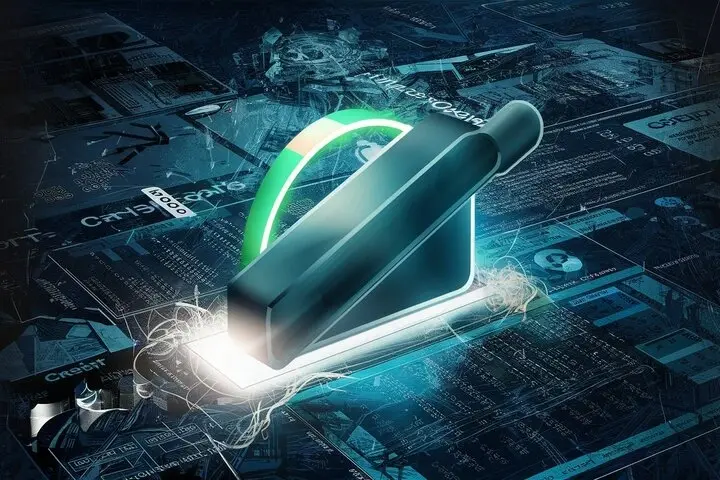
Although cleaning one's credit record might be somewhat demanding, there are some broad guidelines you can use to achieve it successfully.
Those with poor credit history will find it easy to have a very tough time. It can deny credit and loans, mortgages, credit cards, apartment rentals, and jobs. Luckily, there are several legal ways to get your credit history erased and begin from a blank slate.
Request Your Credit Reports
Getting your credit reports from the three credit reporting companies— Equifax, Experian, and TransUnion—is the first step. Review the reports carefully and note what you would want to have deleted and what you do not like. Among other things, this could show up as payments made at a later date, collections, bankruptcy, repossessions, or foreclosed accounts. Ask the credit reporting companies to challenge any inaccurate or manufactured negative information you have evidence for.
Wait Out Negative Goods
Most of your real bad stuff will automatically drop off your reports after a specific number of years:
Usually, Late Payments last for seven years.
Usually starting from the moment the account goes delinquent, collections span seven years.
Chapter 13 Bankruptcy: Notes on record for seven years following the file date.
Chapter 7 Bankruptcy: Remains in effect for ten years since the date it was filed; Foreclosures: The ownership is kept for seven years starting from the date of sale.
Repossessions: Wait seven years starting on the date of sales.
You cannot remove this harmful information before the legally mandated period lapses. The good news is that the lesson to be learned is to be wise in the choice of one's acquaintances and that they influence lessons over time.
Write Goodwill Notes
When there are bad things that cannot be removed, write to the creditor and credit bureaus you want to have deleted the accounts off your credit records. If you have been regular in your payments and judged financially creditworthy, most of the creditors will be ready to make these compromises. Including copies of pay stubs, credit card statements, and other proof of income will help. Proof of other debt, and proof of any monthly expenses, will also help.
Follow the victim's trail and, should the circumstances call for it, contact several tiers of management; until you come across someone ready to make concessions, Eliminating negative items from your credit record or getting them "paid off" will assist in momentarily raising your score.
Correct Problems in a Credit Report
Under the rules specified in the FCRA, you can contest erroneous entries in your credit records including accounts that are not valid, credit cards that are not yours, or wrong personal information. Challenge the mistakes online or write credit bureau-certified letters. Usually, the credit bureaus have to look at the dispute over a 30 to 45-day period. Should they fail to demonstrate the validity of their claim within that period, they have to back off from the erroneous information.
This kind of procedure essentially removes some elements of your credit history and helps to eliminate mistakes that might be affecting your ratings. After fixing the main ones, it is advised to periodically review all three credit reports to investigate additional possible errors.
Request pardon
In some cases, it is possible to search for forgiveness programs on specific forms of debt, such as particular types of student loans or even hospital bills whereby once you qualify for the forgiveness programs, all or parts of the debts will be deleted from your credit reports. These kinds of programs have certain requirements that you must meet, and the services are normally given only once you have finished long application forms and income documentation.
Think through legal approaches.
As a final resort, you could wish to look at legal avenues for trying to clear poor credit records including:
Working in line with consumer rules, credit repair companies seek to remove bad information from credit records. This is the situation whereby, depending on the degree of competitiveness, some businesses show poor outcomes while others report good results.
Professional non-profit groups can help you seek settlements or "pay for deletions" with your creditors. Their technique of escape from negative item removal is "buying".
Filing for Chapter 7 or Chapter 13 bankruptcy will help you stop collection activities and discharge some debt. Depending on the bankruptcy chapter, bankruptcy can show on your records for 7 to 10 years; but, if dismissed, creditors view these consumers as low risk.
Creating Good Credit
Starting new positive credit is the last thing you have to do to get your credit record clear. Start with getting credit cards, apply for an account as an authorized user on another credit card, or get a credit builder loan. Make sure all payments are made on time if you want to raise the company's credit score and strengthen commercial partnerships with suppliers. Using your credit cards cautiously when applying for fresh credit will therefore assist you in improving your ratings over some time. Keeping an eye on your scores and reports can help you to let fresh, good payment behavior replace the outdated bad information.
Erasing black marks from your credit history is not a simple task and achieving this lawfully calls for a lot of time and work. Still, adopting responsibility for your financial situation helps you to change the lenders' impression and get reasonable interest rates. You should so avoid being annoyed as the investing process seems to be rather slow. Start fixing credit right now to wipe off your old credit record consistently.
Call now for expert credit repair services: (888) 803-7889
Read More:
How can you legitimately and legally repair bad credit?
Can I pay someone to clean up my credit?
Is it worth it to hire someone to fix credit?
How long does it take Lexington Law to fix your credit?
How to fix a bad credit score asap?




